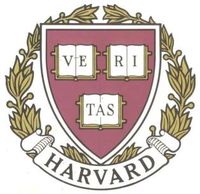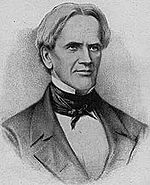 One unspoken fact about this Administration is that it is largely based on Harvard.
One unspoken fact about this Administration is that it is largely based on Harvard.
Harvard people fill the top ranks of the Obama Administration. There were 20 Harvard people on his transition team. His top finance guy, Larry Summers, was the President of the place. Summers' opponent within the Administration is a Harvard professor. Most of Obama's health reform ideas came from Harvard, and a Harvard guy is in charge of his health IT, too.
Sure, George W. Bush was a Harvard MBA, but the political era of which he was a part explicitly rejected Harvard. Harvard represented the elite intellectualism Nixon campaigned against all his life (never mind that Henry Kissinger came from Harvard) and, while the elites were sprinkled throughout every Administration of the last 40 years, they came in despite their school.
Harvard has a reputation, best seen in the late David Halberstam's masterwork, The Best and the Brightest. Harvard people are taught that intellectual rigor, breaking complex systems down like mechanics do a car, then rebuilding them, is the way forward. And, as Halberstam notes, that approach is what got us into Vietnam.
Thus the politics of the last 40 years has been dominated by anti-intellectualism. Conservatives already consider Harvard ties Obama's Achilles Heel.
I agree it could be. That's because politics is not just a game of intellect. Being right is not always good enough. There comes a time for banging heads and "Harvard boy" Obama has not yet shown a willingness to do that.
But there is also something incredibly dangerous about this anti-intellectualism.

Second because it risks America. The anti-intellectualism of Sarah Palin and her Tea Party would turn Bushism into an American Cultural Revolution, with those accused of education vilified, ridiculed, and isolated. How are you going to solve anything then?
Of course many businesspeople — especially some who went to Harvard, love them some tea party and dumb government. Government idiocy made the '00s easy pickings for smart businesspeople, who grabbed the nation's assets as their own exclusive property. You need smart people to catch smart criminals, and without smart cops you might as well be Zimbabwe.
This is a key Clue our business elite have ignored. You can't build an economy just on the money of rich people. You build it based on the money of people in the middle, and when they go without, you do too.
The real problem with both Harvard and Wall Street is that they view intelligence, and wealth, as the property of the privileged few. And we can't have that.
We need mass higher education, and we need to understand that what matters most isn't where you started, but where you end up. The Internet means we can broaden access to knowledge, and test against that knowledge, without the immense per-pupil cost elite schools charge, and pay. Or even what our state schools charge and pay.
Our best schools already know this. All have been transforming themselves, in this generation, from homes to undergraduates to graduate-driven programs. The professional schools and research labs are where the dosh is today, not in the classroom.
We have a collegiate Potemkin village. Athletics exist, not for their own sake, and certainly not for a financial reason, but for a political reason. It's not that contributions flow from football victories. It's state subsidies, and political power, as alumni of big state schools dominate local elites, drive state economies, and funnel money back to the good old U.
That system is as wasteful as the idea of an elite sole-sourced to one school, or one league of schools. We need to transform our education system, using the tools of the Internet, so that anyone can learn what Barack Obama did in college. You need to make every college education as rigorous as any Harvard offers. Undergraduate education, of high quality, needs to become as basic to 21st century American life as high school was in the last century.

That starts with ending this era of anti-intellectualism that has turned Harvard into an epithet. But it also starts with ending the idea that only Harvard can produce our elite.










